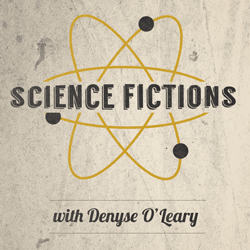 Physics, Earth & Space
Physics, Earth & Space
Copernicus, You Are Not Going to Believe Who Is Using Your Name
Or how.
The anti-Big Bang theorists always sensed that the stakes were high.
In 1938, renowned physical chemist Walther Nernst informed German physicist Carl F. von Weizs�cher that “infinite duration of time was a basic element of all scientific thought.” A beginning to the universe would betray “the very foundations of science,” and “we could not form a scientific hypothesis which contradicted the very foundations of science.”
 But they did, and fruitful research resulted. Mid-2013 experiments confirmed the Standard Model, as it came to be known.
But they did, and fruitful research resulted. Mid-2013 experiments confirmed the Standard Model, as it came to be known.
Worse, the Big Bang gave evidence of fine-tuning, the universe’s apparent preparedness for life, as a theoretical problem for materialists. In an eternal universe, wait long enough and anything might happen. Put a date on the universe and you invoke probability.
Irritatingly (for materialists), Earth seems particularly fine-tuned for life. We live in a nice neighborhood on a spiral arm of the galaxy, far from the black holes, supernovas (exploding stars) and magnetars (deadly radiation sources) at the center. But not so far as to lack heavy elements such as iron. And we have nice neighbors. Giant Jupiter stays far away and sucks up the asteroids that would otherwise kill us. By contrast, the giant uninhabitable planets that orbit stars other than our Sun either hog the habitable space or follow deadly, wonky orbits. Earth, by contrast, is a Goldilocks planet, just right for life.
Unable to dispute it, materialist cosmologists allow us to know they don’t like it. Nobelist Steven Weinberg has heard prominent physicist David Gross say, “I hate it,” and responds,
This is understandable. Theories based on anthropic calculation certainly represent a retreat from what we had hoped for: the calculation of all fundamental parameters from first principles. It is too soon to give up on this hope, but without loving it, we may just have to resign ourselves to a retreat … 1
Not necessarily.
How can we get the universe to play out of tune?
One alternative response has been denial. British intellectual Bertrand Russell declared in his 1935 book Religion and Science that humanity is a “curious accident in a backwater.” Conceivably, Russell didn’t know just how favorable our position is. But Stephen Hawking certainly does, and he has said of our dreary little backwater (1989):
We are such insignificant creatures on a minor planet of a very average star in the outer suburbs of one of a hundred billion galaxies. So it is difficult to believe in a God that would care about us or even notice our existence.
Another response has been to invoke extraterrestrials. University of Sussex astronomer John Gribbin argues that the creators of the world were “closer to men than to gods”:
Evolution by natural selection, and all the other processes that produced our planet and the life on it, are sufficient to explain how we got to be the way we are, given the laws of physics that operate in our universe.
However, there is still scope for an intelligent designer of universes as a whole.
For now. Science writer Michael Shermer goes Gribbin one better, proposing “Shermer’s last law,” that any sufficiently advanced extraterrestrial intelligence is indistinguishable from God:
What would we call an intelligent being capable of engineering life, planets, stars, and even universes? If we knew the underlying science and technology used to do the engineering, we would call it an extraterrestrial intelligence, if we did not know the underlying science and technology, we would call it God.
In short, no designer can have qualities that transcend a sophisticated space alien. Intelligence maybe. But not wisdom.
A third, far more effective, response has been to develop the “Copernican” Principle (though Copernicus would have rejected it), sometimes called the Principle of Mediocrity: Scientists must assume — as a principle — that our planet is mediocre. At present, there is no way of knowing if that is true. It is a guiding assertion.
Media star astronomer Carl Sagan (1934-1996) dramatized the Principle in Pale Blue Dot:
You might imagine an uncharitable extraterrestrial observer looking down on our species over all that time — with us excitedly chattering, “The Universe is created for us! We’re at the center! Everything pays homage to us!” — and concluding that our pretensions are amusing, our aspirations pathetic, that this must be the planet of the idiots. (p. 12)
People don’t want to be thought idiots. The Principle sold. As a BBC writer riffs, “Far from being unique, many now regard Earth as an ordinary lump of space rock and believe that life ‘out there’ is almost inevitable.”
But mark what follows: In the absence of evidence, the Copernican Principle, itself a mere assertion, enables new Earths to merely be asserted. They do not need to be demonstrated; they can now be conjured. The Principle is thus hauntingly akin to Darwinism, which asserts a history of life consistent with materialism, conjures scenarios, and brooks no opposition from evidence.
Curiously, Darwin is frequently invoked in materialist cosmology. Steady State cosmologist Geoffrey Burbidge, who had taxed his colleagues with joining the “First Church of Christ of the Big Bang,” sought to link the 1957 paper that brought him fame with Darwin’s theory of evolution. The conclusion echoed intentionally the conclusion of On the Origin of Species.
We will encounter that theme again in this tale, and consider what it means.
References Cited:
(1) Steven Weinberg, “Living in the Multiverse,” in Bruce L. Gordon and William A. Dembski, The Nature of Nature: Examining the Role of Naturalism in Science (Wilmington, DE: ISI Books, 2011), pp. 554.
Image source: Wikicommons.

